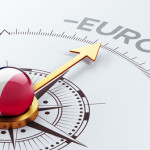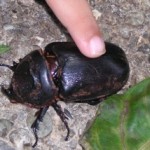What is wrong with the French ?
Strange goings-on in the French legislature
When it comes to opposing palm oil France is at the forefront in the European Union. Aside from no palm oil labels used by French food producers and distributors, there have been repeated attempts to hinder the import of palm oil, palm kernel oil, and associated products into France.
The first try to impose a special levy on palm oil imports that became known as the “Nutella Tax” was staged in 2012. Back then the initiative was justified by French politicians from a perspective of public health. The use of palm oil should be limited to fight obesity and cardiovascular disorders, they said.
The aim four years ago was to triple the existing levy on palm oil from EUR 100 per tonne to EUR 300. In the end, it did not pass in the National Assembly and was never signed into law.
This past January 2016, however, the Nutella Tax has returned. This time, it is supposed to protect biodiversity and the natural environment. Strangely, it is buried deeply in a legal initiative that comes under the heading of Reconquête de la biodiversité, de la nature et des paysages: the “Recapture of Biodiversity, Nature, and Landscape”, in English translation.
What has Happened so far?
On January 21, 2016, the French Upper House, the Senate, in a first reading voted by 263 votes for (32 against) the proposed “Recapture Bill”.
The overall goal of the bill according to the website of the French Senate[1] is as follows:
| Original French Text | English Translation by the author |
| Par ce texte, le Gouvernement souhaite renouveler et simplifier “la gouvernance des politiques en faveur de la biodiversité au niveau national et régional en rassemblant plusieurs organismes existants au sein d’une instance de concertation, le Comité national de la biodiversité, et d’une instance d’expertise, le Conseil national de protection de la nature”. | By that text, the Government wishes to renew and simplify “the policy governance for biodiversity at a national and regional level in bringing together several existing agencies in a consultative body, the National Committee of Biodiversity, and a body of expertise, the National Nature Protection Council. |
Regarding the specific stipulations on palm oil contained in the text, the aim is to introduce an additional article before Chapter One, Title V of the bill. The new section creates an additional tax on palm oil for human consumption.
Such a palm oil surcharge already exists at EUR 100 – per imported tonne. According to the new bill, this contribution will be raised gradually over three years following its going into force: from EUR 300 per tonne in 2017 to 900 in 2020 and from there onwards.
What is all this about?
It would probably be worthwhile to have an expert in community law conduct an in-depth analysis of what kind of tax the Nutella Tax really is and whether it is in line with EU trade policies.
There can be little doubt that what the Senate voted on a couple of weeks ago constitutes no less than a non-tariff trade barrier. First, it appears to meet the criteria of so-called special supplementary duties.
Secondly, it most likely violates the “national treatment principle” of the WTO which states that imported goods should be treated no less favourably than those produced domestically.
However, aside from legalistic details in the realm of international trade, the “Recapture Bill” is plain and simply a fraud.
Just looking at the terminology of the bill´s name invites suspicion. “Recapture” what, and from whom, the reader wonders? If the goal of the law is the protection of biodiversity at the national and regional level, then how is this purpose served by taxing a product imported from abroad? Or is the goal of the law to protect the rainforest in Southeast Asia? That would be an unusual use of national law-making.
The question arises what really lies behind this legal initiative? Upon closer inspection it appears that the motivation of the French lawmakers neither is the protection of the environment, nor the health of the population.
The proof of this hypothesis can be found in two revealing facts: first the structure of French vegetable oil production, and second the debate in the Senate preceding the vote on the law on the Recapture of Biodiversity, Nature, and Landscape.
Regarding the first point, analysts will note that the planned additional levy will apply not only to palm and palm kernel oil but also to coconut oil (i.e., copra). Given the fact that France imports several other vegetable oils as well it seems odd that the bill singles out just those three. How come?
The thing is that France domestically produces several vegetable oils in considerable quantities. Leading is rapeseed, followed by sunflower oil, soybean oil, and corn oil. All four of these oils are imported into France as well.
As France is located in Western Europe, it also imports oils extracted from plants that do not grow in the climate of mainland France. In 2014, the most important of those were, in that order: palm oil, groundnut oil, and palm kernel oil.
The fine point of this observation is that while France imports more groundnut oil than palm kernel oil, the former is not covered by the “Recapture Bill”. And that despite the fact that environmental issues with peanut production are well documented. Particularly interesting in that regard is a study published in the weekly Nature that looks at the “Increase in African dust flux at the onset of commercial agriculture in the Sahel region”.[2]
Groundnut is one of the main commodities produced by commercial agriculture in the Sahel zone of West Africa. And still it manages to avoid being slapped with an additional import duty.
But how can that be? Is it possible that there are French geopolitical interests at stake? After all, one of the largest groundnut producers in West Africa is the Republic of Senegal, a former French colony. To this day the country’s national language is French and diplomatic as well as economic ties to the old motherland are strong.
Could this explain why a crop grown in the Sahel Zone, known for its thirst for water and pesticides is exempt from the French law claiming to protect the environment and biodiversity? Honi soi qui mal y pense, as the French saying goes!
Even more revealing is a look at the protocol of the Senate debate from January 21, 2016 on the law initiative in question. It is available on the Internet[3]. Contributions to the debate include assertions that palm oil production today is no longer a matter of smallholder agriculture but of industrial scale instead. That notwithstanding the fact that in Malaysia, for instance, more than 40 percent of the production does come from smallholder farming.
There is also talk of palm oil causing cardiovascular illness and severely aggravating Alzheimer´s disease. This of course blissfully ignores recent findings of the scientific community that establish no such connection.
So far, so familiar. These two lines of argument frequently appear in the international debate on palm oil. In the particular case of the discussions of the law initiative in the French Senate, one point, however, is repeatedly raised. That is the alleged tax priviledge for palm oil compared to domestically produced crops.
For instance, one participant in the debate states:
| «Or l’huile que nous produisons en France est plus taxée que l’huile de palme!» | “Our golden oil produced in France is taxed more than palm oil!” |
Another assertion by a Senate member:
| «Par ailleurs, la question qui est soulevée ici est aussi celle de la distorsion entre la taxation sur les différentes huiles. Notre huile d’olive est plus taxée que l’huile de palme. Je pense qu’un rééquilibrage serait de bonne politique.» | “Moreover, the question that arises here is that of a distortion between the taxation on the different oils. Our olive oil is more taxed than palm oil. I think a rebalancing would be good policy.” |
The discussion then reaches a climax in the following remarks of this French politician:
| Nous savons aujourd’hui qu’il y a un vrai problème. La taxation additionnelle sur l’huile de palme ne va sans doute pas tout résoudre, mais ce sera en tout cas un signal fort, favorable tant à la protection de l’environnement qu’aux productions françaises – on peut être chauvin, quand bien même officiellement on ne peut pas le dire. | We know today that there is a real problem. The additional tax on palm oil will probably not solve everything, but it will, in any case, be a strong signal for environmental protection as well as the protection of French products – one can be chauvinistic although officially we cannot admit it.” (emphasis added) |
At this point in the debate the protocol notes “smiles in the aisles of the CRC group”. That is the Communist group in the French Senate, after its French name of Groupe Communiste, Républicain, Citoyen (CRC).Now this is a remarkable statement, indeed. It leaves you to wonder if the Senate member forgot for a moment that the session was public?
Finally, one more quote. After the vote was in, this senate member opined:
| «Nous sommes à l’heure de vérité, et je remercie mes collègues de tous bords qui ont voté cet amendement, car on ne peut pas pénaliser des huiles végétales de qualité produites dans un environnement proche au profit d’une huile, l’huile de palme, produite très loin.» | “We are at the moment of truth, and I thank my colleagues from all sides who voted this amendment because we should not penalize quality vegetable oils produced nearby and favor another oil, palm oil, produced far away.” |
Do these comments sound like lawmakers concerned about the environment? Or over public health, for that matter? Or do they sound more like economic self-interest?Judge for yourself.
Lucas
[1] http://www.senat.fr/dossier-legislatif/pjl14-359.html
[2] http://www.nature.com/nature/journal/v466/n7303/full/nature09213.html
[3] http://goo.gl/FG1jan










Leave a Reply